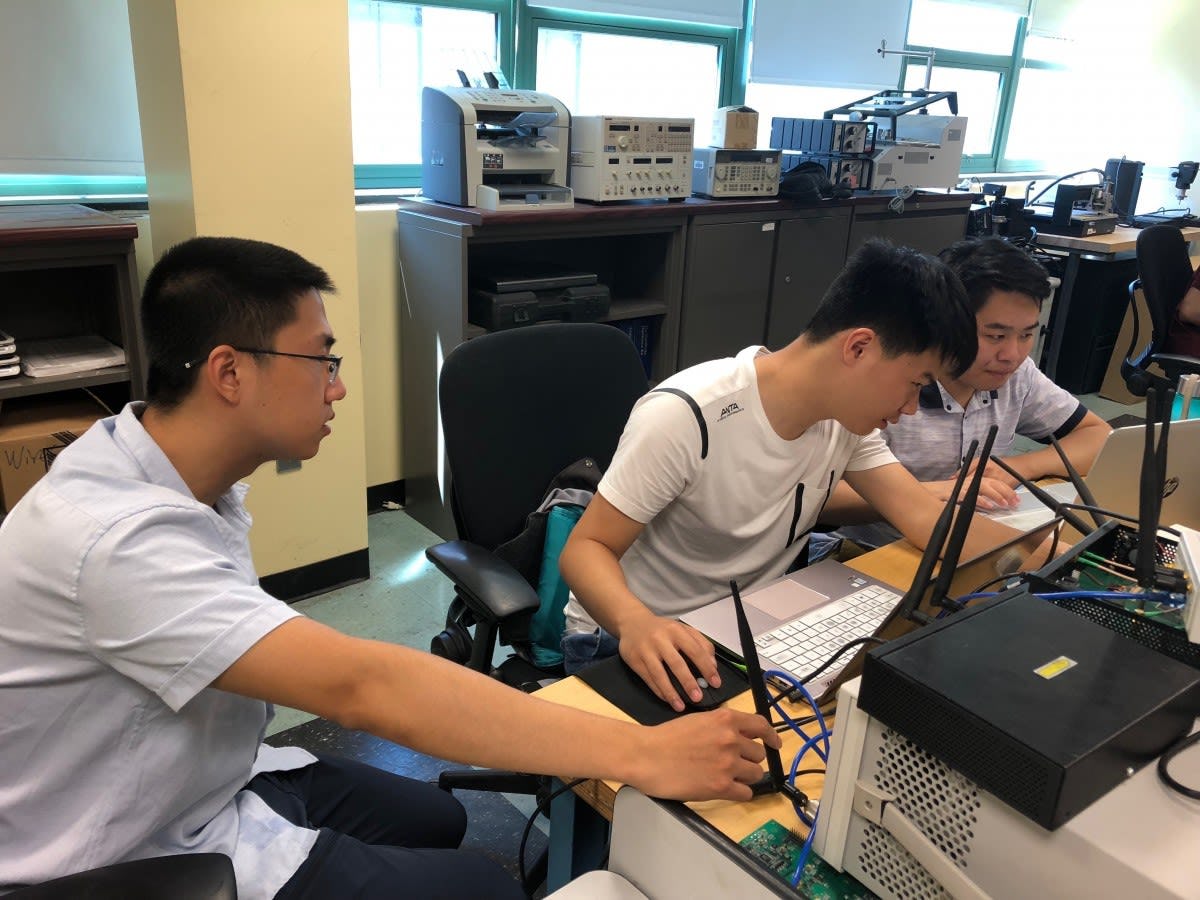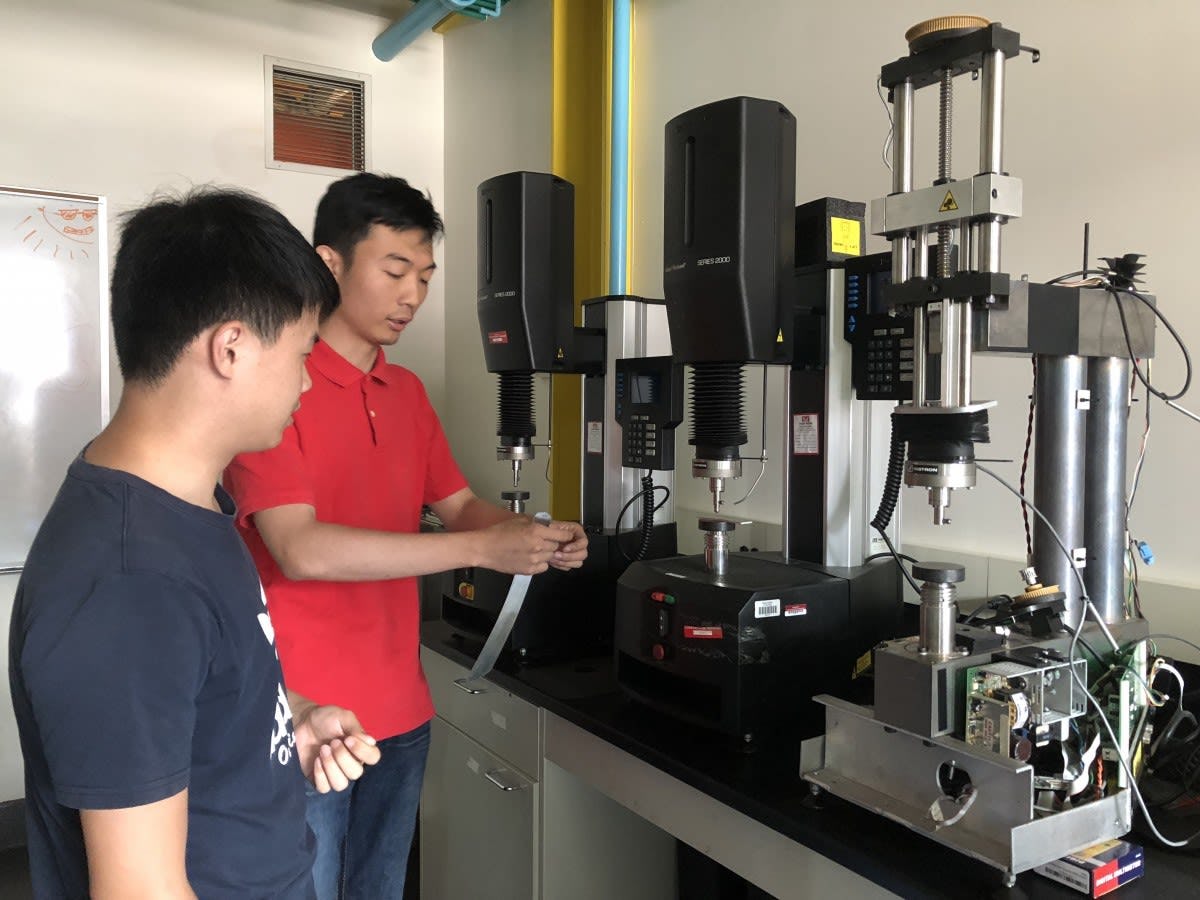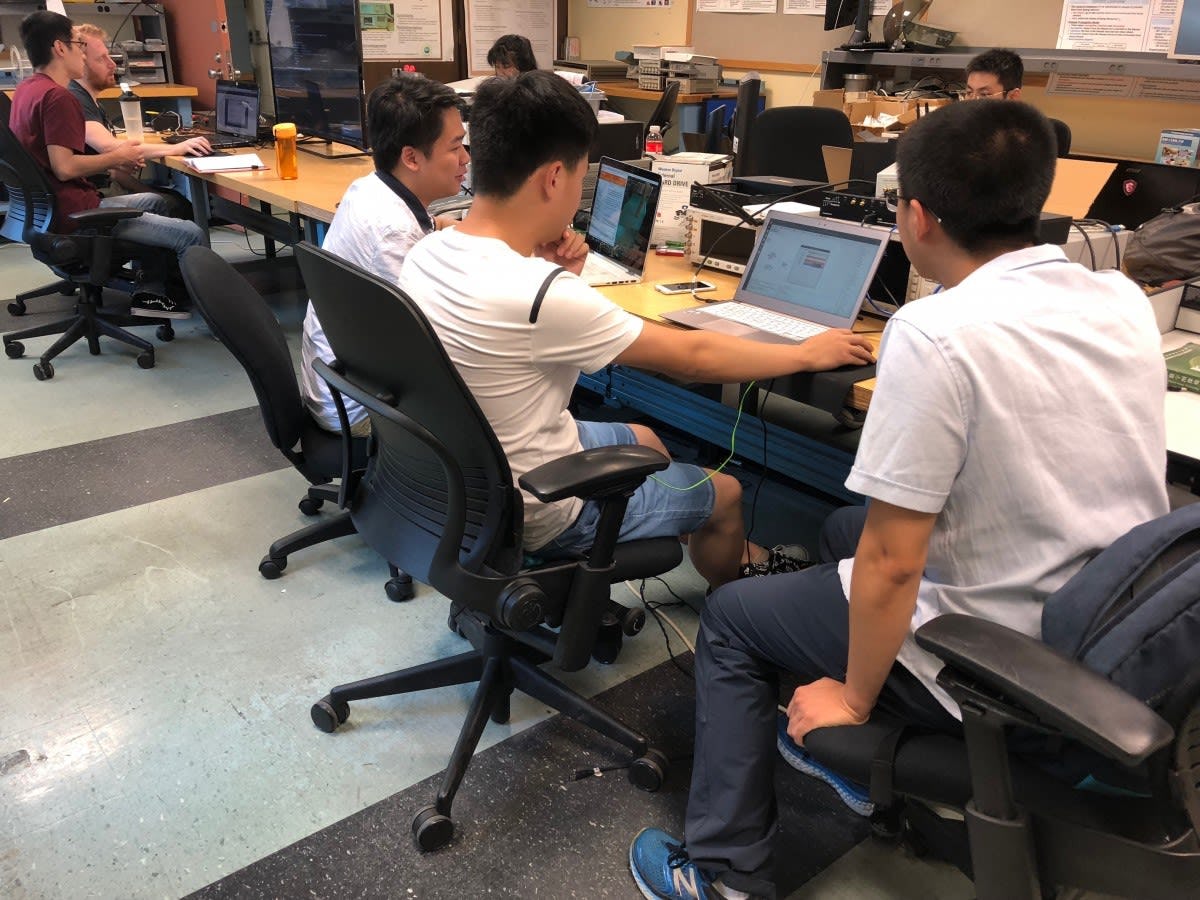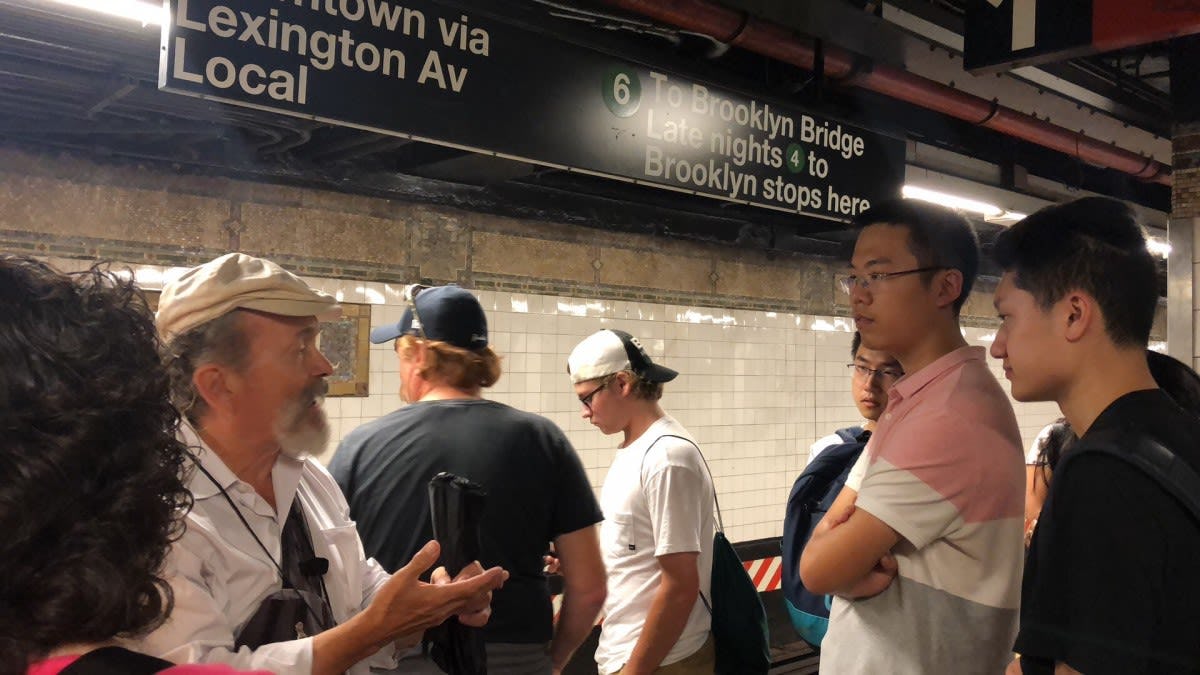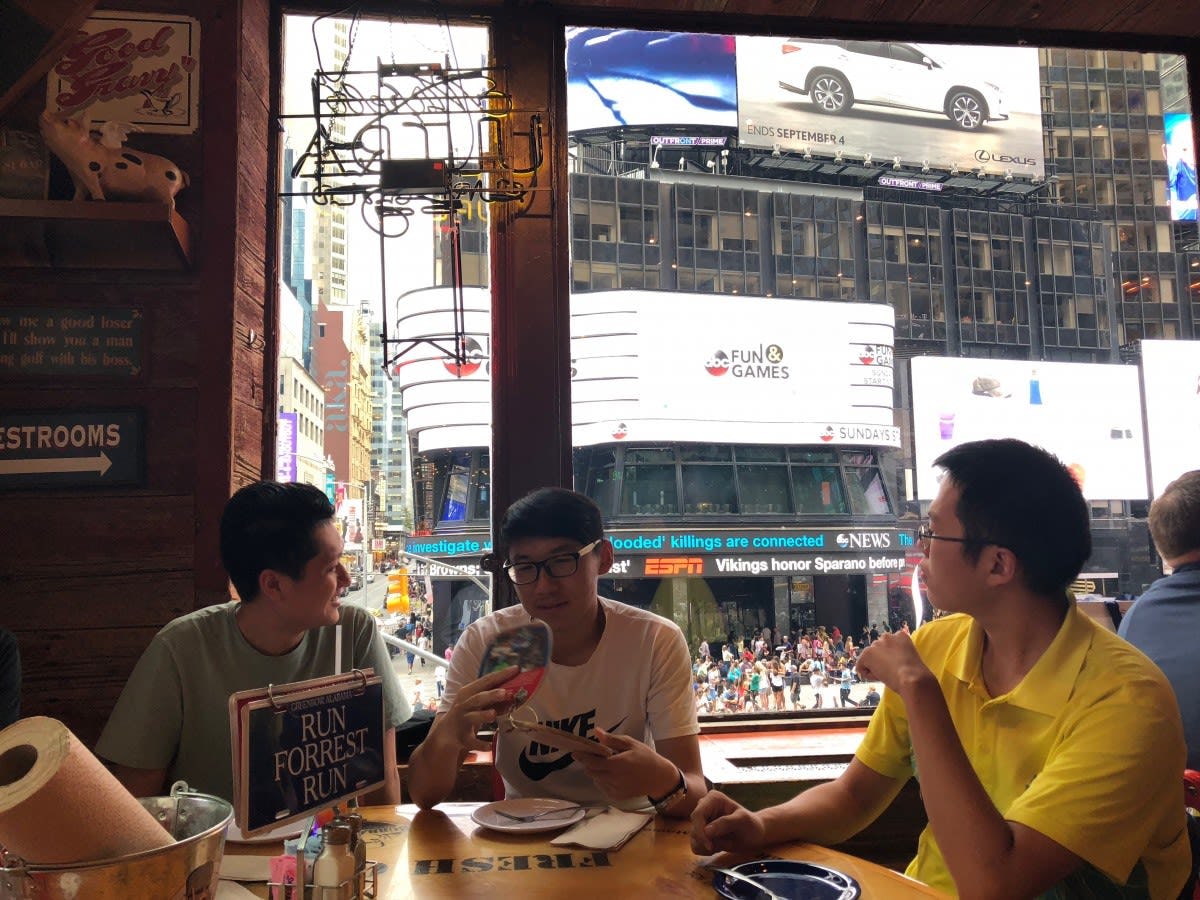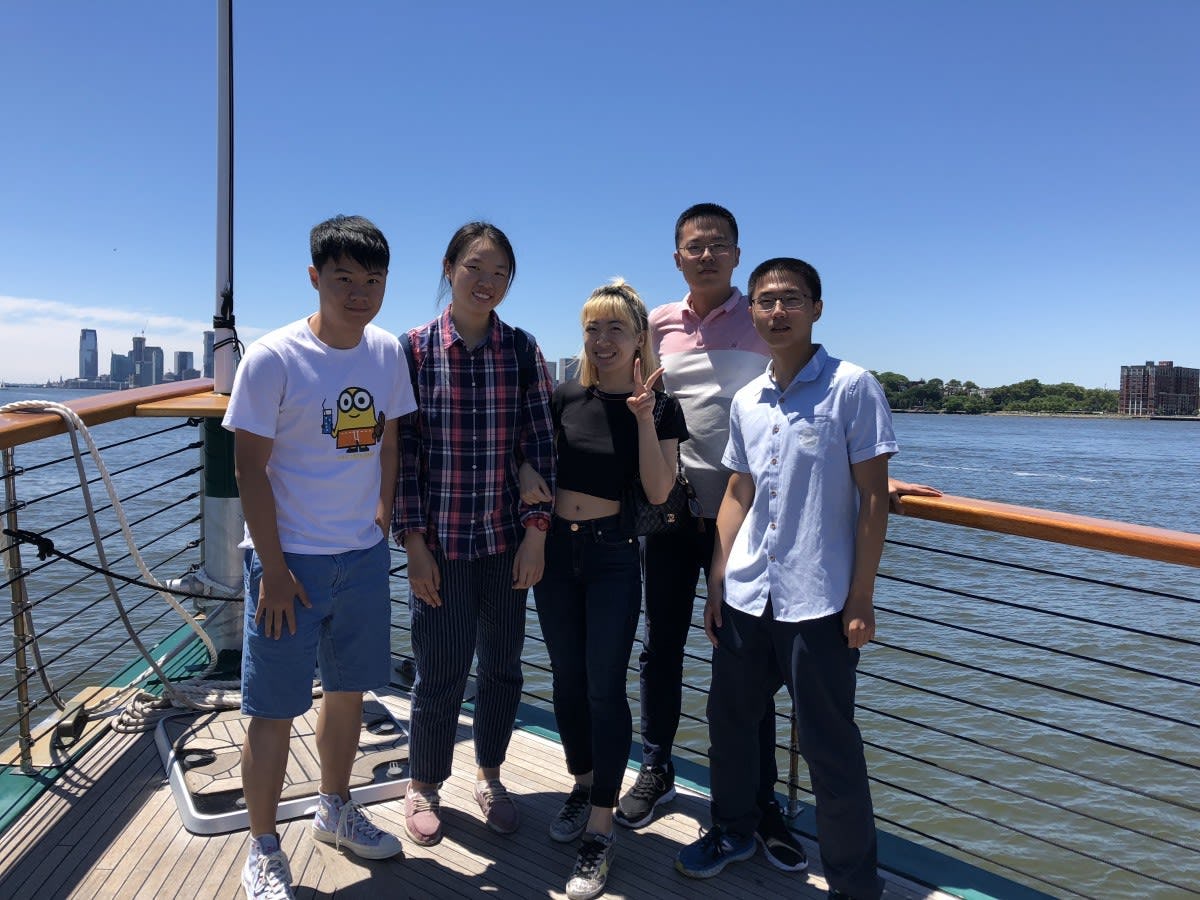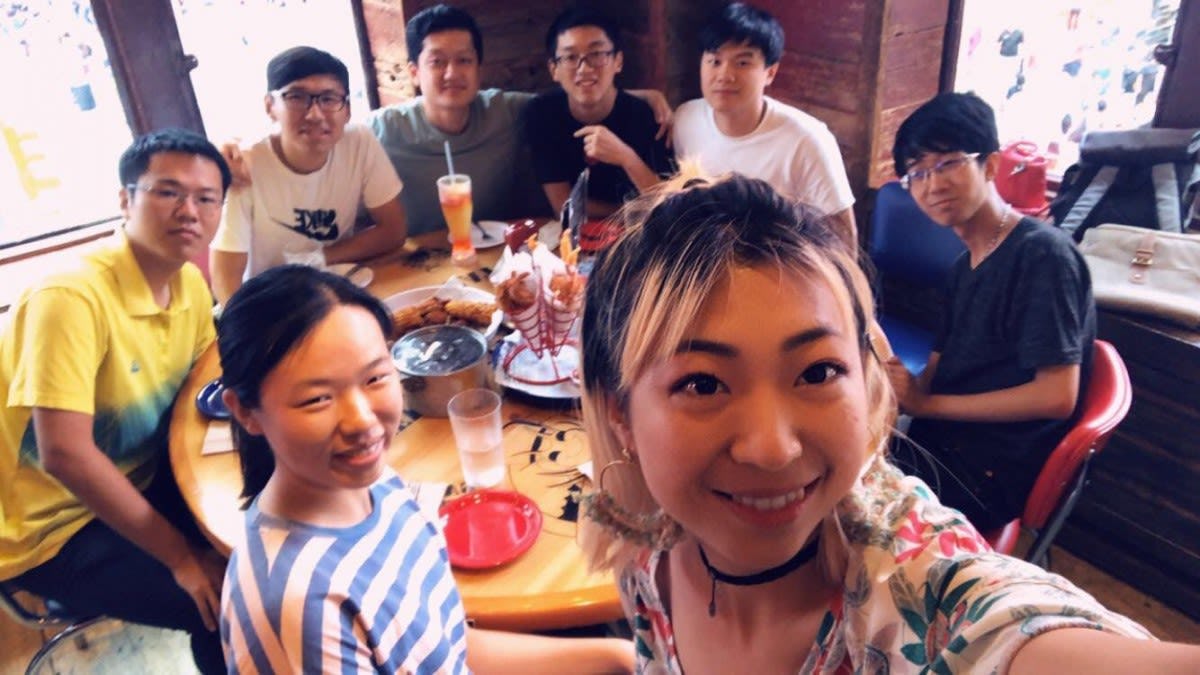Stevens Completes First Summer Study Program with Tsinghua University
The Tsinghua University Summer Research Program at Stevens Institute of Technology was a complete success.
Eight undergraduates came to Stevens to participate in pillar research projects, engage with the Stevens community, participate in campus life, and experience life in America—with a focus on opportunities in nearby New York City.
"We were so excited to have these students," says Jean Zu, dean of Stevens' Charles V. Schaefer, Jr. School of Engineering and Science (SES). "This summer program was the first part of Stevens’ agreement with Tsinghua University, and it was a strong beginning. The Tsinghua students worked very hard. We are very proud of the results they achieved in their short time here."
For eight weeks students Chenran Du, Youjia Huang, Shihai Jia, Baohua Ni, Lei Yang, Rui Yang, Yanghao Yu and Pengyu Zhang worked alongside Stevens students and professors in active research labs key to Stevens foundational pillars. Their projects explored applications in biomedical engineering, healthcare, artificial intelligence, machine learning and sustainability.
Du worked with professor Woo Lee to support human-computer interaction for mental disorder care by using machine learning to explore the body’s responses to emotional experiences. "I learned that what really matters is focus," said Du, "not only in research, but also personally. Professor Lee encouraged me to focus on what I am interested in, and I think this advice extends into the rest of my education and even my career."
Huang and Yu worked with professor Yu-Dong Yao to classify different signal types in universal software radio peripheral hardware with deep learning, and jam or anti-jam signals in software defined radio. "I learned how to figure out problems myself at Stevens," said Huang. "Before I came here, I used to just think problems through over and over again to get the right answer. Now, I know I can try several solutions, and even if they’re wrong I know eventually I will figure out the right answer. This is good training for engineering." "I learned how to do research at Stevens," said Yu, "how to express a goal, and how to solve it. I learned self-learning, and I think that’s the most important thing for doing research."
Jia worked with assistant professor Damiano Zanotto to refine a wrist sensor to measure walking gait patterns for autistic children. The wrist sensor builds on existing technology measuring gait patterns in elderly patients. "It feels really good to be part of a team with a meaningful goal," Jia said. "At Tsinghua, most of our projects are just designed for students to complete. I really liked working on a project that would help people outside the classroom."
Ni worked with assistant professor Samantha Kleinberg to refine continuous glucose monitor data and improve the accuracy of a meal detection algorithm for diabetic patients. "In the Stevens summer program, I had all of my time to spend on one project," said Ni. "At Tsinghua, I only have two or three weeks to work on a project, and I need to do it while taking other courses. Here, I could think about a problem for two or three days without worrying about other deadlines. I could think of a new idea and have time to implement a system to try it. This approach made me feel relaxed and helped me do quality research."
Lei Yang worked with assistant professor Valentina Prigiobbe to create simulations of the best ways to flush pollutants out of soil using different concentrations of foam. "I was happy I could discuss my research with Ph.D. students in my lab," Yang said. "We learned a lot from each other, and those discussions were quite important to the results we achieved."
Rui Yang worked with assistant professor Ramana Vinjamuri to measure the relationship of different hand motions while grasping to help rehabilitate paralyzed hands. "I think the research I did here was very interesting," said Yang, "and I learned a lot in this program."
Zhang worked with professor Yi Guo to implement a system to control a robot arm with Microsoft Kinect. "In my lab, teammates came from many different countries—Russia, Turkey, China, Italy," lists Zhang, "and that made the lab environment very warm. It was a really good experience for me."
"They were all efficient students," said program coordinator Alexis Zhang. "In eight weeks they completed projects that other students would need months to complete. They were fantastic."
And when they weren’t hard at work, they were exploring life in America.
"This was my first time being in America," said Ni. "I think this experience helped me learn English. When I came here, everything was in English so I had to read English, speak English, answer questions in English. I had to use it, and I think my English improved a lot."
"This was also my first time in America," said Lei Yang, "and it was exciting to experience life here."
"I made great friendships with my teammates in my lab," said Yu. "They are all undergraduates at Stevens. We had a really good time. We played basketball and went swimming. I even went to their house for dinner and we played games together. It was a very fun experience. It made me want to become a foreign student in America."
"I traveled in America last year, and I got to know the social environment here," said Jia. "This time, I learned more about campus life. I think it’s really attractive."
"I think the Stevens summer program was a very bold experience," said Jia, "very near perfect."
The program is part of a cooperation agreement between Stevens and Tsinghua University. Tsinghua is exploring joint and co-programs with SES in cybersecurity, artificial intelligence, deep learning, sustainability management and construction management. Dean Zu is the champion of this partnership.
